Itchy Tattoo: Causes And How To Relieve It
Uncover insightful tips and advice to soothe and protect your inflamed body art.
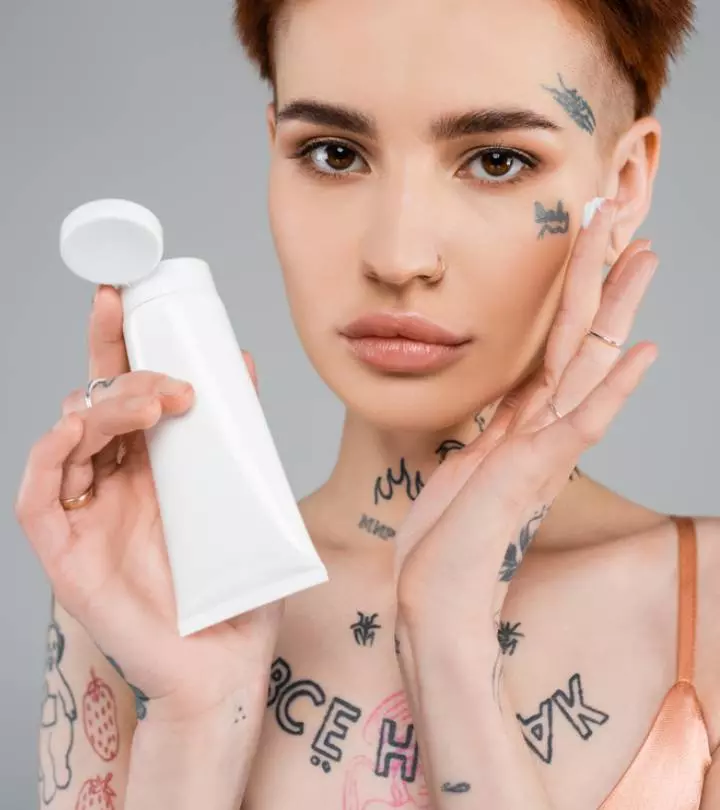
Image: Shutterstock
An itchy tattoo is the plight of every tattoo wearer at some point after getting inked. It should not be a surprise, considering how a tattoo needle basically breaks through the skin’s barrier, naturally aggravating the skin. Resultant itching for a couple of weeks following a tattoo is quite common and not unexpected. Typically, the tattooist recommends moisturizing aftercare products and gives tattoo-cleaning instructions that should ensure your tattoo heals comfortably. So, it may not be a big deal.
However, while some experience the usual itchy, dry symptoms when the tattoo is healing, others may experience it as an adverse reaction to the ink pigments or potential allergies from the equipment used. In this article, we shall learn all about these negative effects, tips to manage them, and more. Keep reading to understand this condition better.
In This Article
Why Is My Tattoo Itchy?
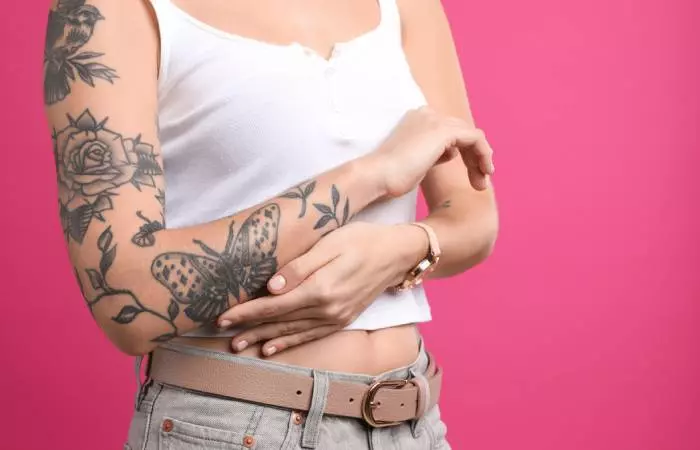
A tattoo is essentially a wound and it is only natural that the healing process, as the skin stitches itself back together, is accompanied by some itching. Therefore, this period is when your tattoo is most prone to itching. However, there are multiple cases wherein a tattoo begins feeling itchy much later as a delayed hypersensitivity reaction or a triggered sensitive skin condition. This is generally when your body’s immune system is fighting back against some skin-irritating foreign substances that might have been introduced during the tattoo process and have been dormant so far. There may be a couple of different culprits responsible here.
Let us look into some potential causes of an itchy tattoo.
- Healing Process Of A New Tattoo
The most common reason for an itchy tattoo is the normal healing process after getting a new tattoo. Your skin is inflamed due to the piercing action of the tattoo needle and the introduction of foreign bodies through tattoo ink pigments into it. Your immune system is working hard to repair your healing skin while protecting it from potential infections. This can be conveniently treated by applying moisturizing aftercare ointments whenever the skin feels irritated.
- Bacterial Or Viral Infections
A tattoo needle breaks through the epidermis and dermis layers of the skin to deposit tattoo pigments that result in permanently inked skin. As these layers of skin tissues are exposed to the elements, they are vulnerable to viral or bacterial skin infections during the tattoo healing process when the inked wound is still fresh and recovering. When a tattoo is infected, it may also turn red, swollen, and discharge pus along with itching. If left untreated, they may turn into severe infections that can cause fever and related symptoms. Therefore, if you notice any sign of infection accompanying the itching, ensure that you get medical treatment immediately.
- Allergic Reactions
Your body may be allergic to the pigments in the tattoo ink and the resultant tattoo allergy often manifests in the form of itching. Tattoo inks are made of pigments that may contain potentially harmful irritants or allergens. Studies have shown that red or yellow ink tattoos are more susceptible to allergic reactions that may occur almost immediately or even several years later (1). An ink allergy to these pigments may also get triggered during a retouching or tattoo removal procedure. The allergy symptoms also include redness and bumpy hives on the tattooed skin and seeking medical advice for their proper treatment is very important.
- Reaction To Contaminated Ink
Although one may experience an ink allergy from the regular components of tattoo inks as they come, the potential of introducing unhygienic or contaminated ink into the skin is now a growing cause of concern. Multiple studies have reported that about 10-86% of tattoo inks available in the market are microbially contaminated and may even contain potentially pathogenic microbes (2). The U.S. Food and Drug Administration (FDA) recommends exercising precaution as even new and unsealed pigments labeled “sterile” may be contaminated (3).
- Pre-Existing Sensitive Skin Conditions
If you have a chronic skin condition like psoriasis or eczema (where itching is a common symptom), you need to be extremely careful and follow extra precautions when getting a tattoo compared to those who do not have your condition. Your skin is very sensitive and prone to inflammation that easily triggers your immune system when needles prick or your skin and foreign pigments enter your body. Conditions like psoriasis or eczema on a tattoo can cause significant itching and discomfort. It’s important to address it promptly to avoid further irritation and potential complications. Your skin may also respond to the wraps or bandages the tattoo artist uses. Typically, an experienced tattoo artist is aware of this possibility, and many people with chronic inflammatory skin conditions do successfully get inked. However, you should consult your medical profession and get the green signal before you get tattooed in this case.
- Tattoo Sarcoidosis
This is a very rare skin disease where the triggered immune system forms a bunch of inflammatory bumps or granulomas on the tattooed skin and the area surrounding it. This is an autoimmune condition that often affects old tattoos and may also impact multiple other organs (4). Hence, though sarcoidosis is not a condition specifically related to tattoos, it can affect tattooed skin, causing bumpy rashes that may get itchy.
- Reaction To MRI Scans
Although this is a rare occurrence, some people with tattoos may experience cutaneous complications in the tattooed area of the skin after undergoing MRI scans for other medical concerns (5). There may be an inflammatory burning sensation, swelling, as well as itching depending on the severity of the reaction.
 Quick Tip
Quick TipNo matter the cause of the itchy tattoo, the good news is that there are many solutions to provide much-needed relief to it. Let us explore some ways in which you may be able to soothe an aggravated tattoo.
Key Takeaways
- An itchy tattoo is a common post-inking experience. It is primarily a result of the natural healing process.
- Regular moisturizing helps soothe and prevent discomfort during this phase.
- Itchy tattoos may result from various factors, such as bacterial or viral infections and allergic reactions to ink pigments or contaminated ink.
- Individuals with pre-existing skin conditions such as psoriasis or eczema should exercise extra care while getting a tattoo.
- Older tattoos experiencing itching can benefit from over-the-counter topical ointments, moisturizing with approved lotions, and soothing oatmeal baths.
How To Relieve Itching On A New Tattoo
As mentioned before, itchiness in the case of a brand-new tattoo is a common occurrence and nothing to be alarmed over. However, you must exercise proper care by keeping the tattoo clean and minimizing the risk of infections or damaging the body art. Dry skin and an itching sensation due to a healing tattoo can be remedied in the following ways:
- Apply Tattoo Aftercare Moisturizers
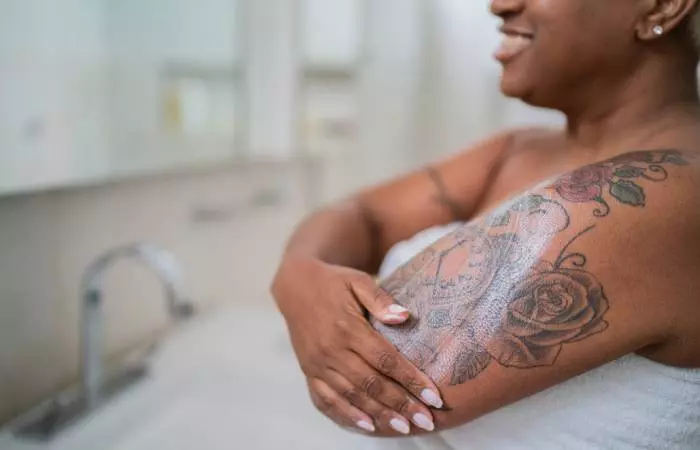
Ask your tattoo artist for specific moisturizing products to use. They may offer insight into products with certain ingredients that you must avoid. Generally, a mild, unscented lotion should do, but do take the approval of your tattooist as well as a dermatologist to be on the safe side.
- Cool Compress
This is the go-to solution to reduce redness, itchiness, and swelling for many people who experience itchy conditions. However, talk to your doctor before using a cold compress on fresh new tattoos for guidance on using it correctly, without interfering with the healing of the tattoo.
 Quick Tip
Quick Tip- Medication For Pre-Existing Skin Conditions
If your itchy tattoo is due to triggered flare-ups of pre-existing skin conditions, see your doctor immediately. They will prescribe topical creams and ointments that can alleviate the symptoms and help manage the flare-ups.
- Wear Loose Clothing
If your tattoo is usually covered by clothes, wear loose clothing in breathable fabrics such as cotton, bamboo, or hemp. This will help your tattoo breathe and minimize friction that can worsen the itching.
- Avoid Direct Sun Exposure
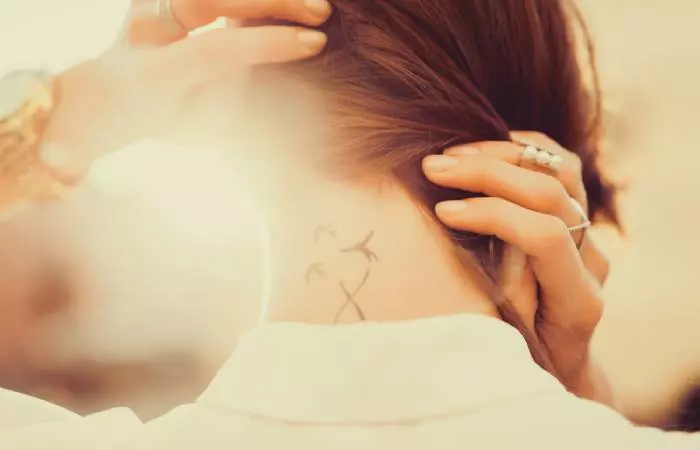
Do not step out in the sun as it may further irritate your skin and increase the itching. It is also not ideal to use sunscreen on a recovering tattoo at least for the first two weeks when the tattoo is healing. If you do have to step outdoors, make sure your tattoo is completely covered with breathable fabric.
Shravanthi Pitty, a lifestyle blogger, shares the day-to-day progress of the healing phase of her new body art in one of her blog posts. She writes, “I was told there would be itching and skin peeling. It was the morning after and there were still no signs of any skin flaking. But there was a tiny bit of itching. Every time I had the inclination to scratch, I had to distract myself, preferably with a Jon Snow poster, long enough for that urge to die down (i).”
It is important that you remember not to scratch your newly tattooed skin. Scratching the tattooed area not only undoes days of healing but may also lead to tears in your newly inked skin, an increased risk of infection, and may impact how your tattoo looks.
Doing the above-mentioned things should soothe your itchy new tattoo to a great extent. However, if your old tattoos are suddenly acting up, then you may go for some stronger methods.
Managing Itchy Older Tattoos: Comprehensive Solutions
Sometimes people may find that their older tattoos have developed an itch. In this case, the tattoos have been healed for some time and need not be treated with as much caution as new tattoos. Here is how to stop tattoo itching condition with healed older body art:
- Applying OTC Topical Ointments
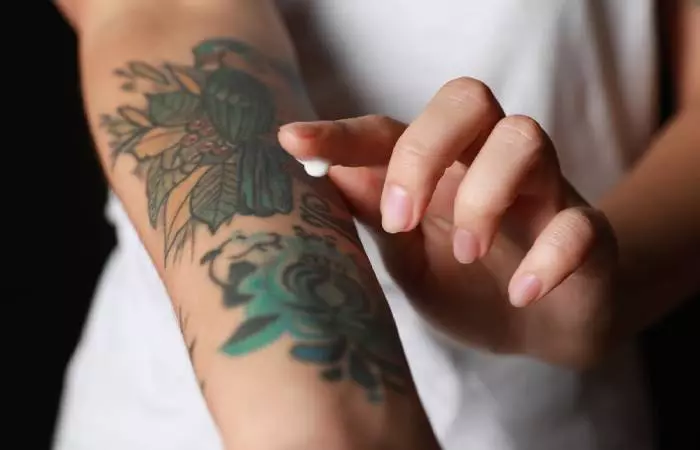
Since your older tattoos are not open wounds like fresh ones, you can use topical pruritus ointments such as a 1% hydrocortisone cream to relieve itching on the tattooed area. Avoid doing this for fresh tattoos as these strong ointments can interfere with the healing process of a new tattoo.
- Moisturize The Tattoo
You can use thicker moisturizing oatmeal-based lotions or those containing cocoa butter or shea butter. Avoid products that may contain potential irritants and allergens, otherwise most moisturizing creams and lotions should do.
- Try An Oatmeal Bath
Go for a soothing colloidal oatmeal bath. Submerge yourself in the bath and gently massage the affected tattoo to soothe it. Do follow up with the moisturizer once you are done bathing and have dried yourself. Pat dry yourself gently with a soft clean paper towel. If the tattooed area is still damp, then let it air-dry.
- Opt For A Medical Treatment For Sarcoidosis
If your itchy skin diagnosis reveals sarcoidosis, your doctor may prescribe immunosuppressants to manage the symptoms and prevent potential complications in other organs of your body.
- Get A Tattoo Removal
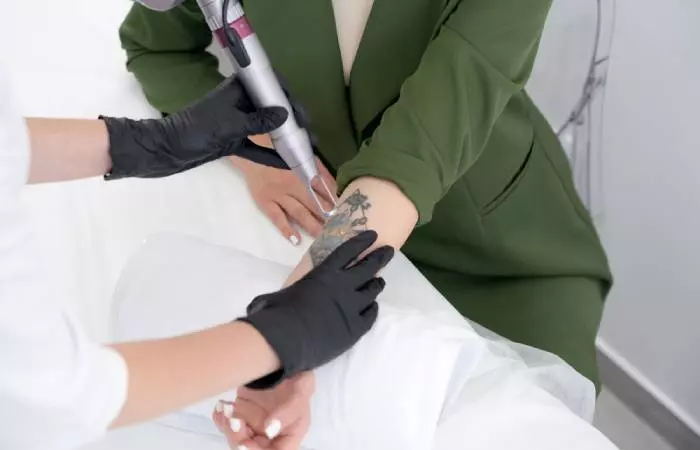
In case the itching in your tattoo is severe, you may have to go for surgical removal, laser treatment, or dermabrasion procedures. Your healthcare provider shall be able to chart out the best solution for you and help you through the process.
When it comes to older tattoos, you can also apply a cold compress to soothe itchiness without consulting a doctor since the skin has already healed.
In most cases, one may be able to manage an itchy tattoo by themselves at home but some special cases may require medical intervention. Let us understand more about it in the next section.
When To See A Doctor
It is usually rare for an itchy tattoo condition to escalate enough and require emergency medical care. Those who have pre-existing skin conditions are already aware of the complications and the itching from the wound healing process is completely normal.
However, if you suspect an infection where the itchiness has worsened to a swollen, reddish rash, or it has started oozing pus, then you need to seek your doctor’s help immediately. Subsequently, the itching accompanied by unexpected bouts of fever and chills is another indication that your body art is taking a turn for the worse and needs medical attention.
Lastly, do remember, that no matter how strong the urge to itch is, refrain from scratching the itch at all costs as it only aggravates the skin further, increases risks of infections, and may result in scarring.
An itchy tattoo is a fairly common occurrence among most tattoo wearers. The causes range from a simple healing wound itch to severe bacterial infections or autoimmune triggers. The itch can be managed by following basic tattoo aftercare tips and using soothing home remedies or medical prescriptions. However, do remember to avoid scratching the itchy tattoo at any given point to minimize the risk of infections and tattoo scarring. If the itchy tattoo is accompanied by symptoms of fever, you may have an escalating infection that needs immediate medical intervention. Further, if the itchiness is stubborn and no remedies seem to work, consult your dermatologist for stronger treatment options.
Frequently Asked Questions
Why does my tattoo itch after 2 years?
Experiencing an itch on an older tattoo may be a delayed hypersensitivity reaction to red tattoo ink pigment. A doctor may prescribe topical medications to alleviate the itch. Sometimes, an itchy tattoo may have nothing to do with the ink and may be a sign of an autoimmune disease that triggers the skin. In this case, your doctor will put you on immunosuppressants to keep the condition from worsening.
When can I scratch my tattoo?
It is not advisable, nor recommended to scratch an itchy tattoo under any circumstances. Scratching would only worsen the case, possibly leading to wounds that attract bacteria and eventually lead to an infected tattoo. You may apply a soothing, unscented moisturizer to calm the irritation.
How long does a tattoo itch last?
When you get a fresh tattoo, it might take 1-2 weeks to heal and during this period, it may feel inflamed and itchy often. Follow your tattoo artist’s aftercare instructions diligently to keep your tattoo moisturized and let it heal properly.
How do you sleep with an itchy tattoo?
Many professional tattoo artists recommend sleeping with the initial wrap on overnight, then cleaning the tattoo the next morning, moisturizing, and re-wrapping. How often you re-wrap also depends on the size and placement of your tattoo. It is ideal to ask your tattoo artist for specific instructions to care for your itchy tattoo.
Can I stop my tattoo from itching?
Itching is a normal part of the healing process, but you can minimize discomfort by keeping the tattoo moisturized and avoiding tight clothes. Be sure to follow your tattoo artist’s aftercare instructions carefully to prevent irritation.
While a new tattoo feeling dry and itchy is a normal and expected occurrence, sometimes healed older tattoos may also develop itchy rashes. Check out the video below where a tattoo artist answers client concerns about itchy healed tattoos.
Personal Experience: Source
StyleCraze's articles are interwoven with authentic personal narratives that provide depth and resonance to our content. Below are the sources of the personal accounts referenced in this article.
(i). Getting My First Inkhttps://shravanthipitty.wordpress.com/2016/09/07/getting-my-first-ink/
References
Articles on StyleCraze are backed by verified information from peer-reviewed and academic research papers, reputed organizations, research institutions, and medical associations to ensure accuracy and relevance. Read our editorial policy to learn more.
- Complications Of Tattoos And Tattoo Removal: Stop And Think Before You Ink
https://www.ncbi.nlm.nih.gov/pmc/articles/PMC4411590/ - Recalls Of Tattoo And Permanent Makeup Inks In The United States And A Follow-Up Microbiological Survey Of Inks With A Previous Recall History
https://www.ncbi.nlm.nih.gov/pmc/articles/PMC10668429/ - Think Before You Ink: Tattoo Safety
https://www.fda.gov/consumers/consumer-updates/think-you-ink-tattoo-safety - Tattoo Sarcoidosis
https://www.ncbi.nlm.nih.gov/pmc/articles/PMC5756161/ - Tattoo Complications And Magnetic Resonance Imaging: A Comprehensive Review Of The Literature
https://pubmed.ncbi.nlm.nih.gov/32216450/ - Hypersensitivity Reactions Due To Black Henna Tattoos And Their Components: Are The Clinical Pictures Related To The Immune Pathomechanism?
https://www.researchgate.net/publication/315845988_Hypersensitivity_reactions_due_to_black_henna_tattoos_and_their_components_Are_the_clinical_pictures_related_to_the_immune_pathomechanism
Read full bio of Terri L Watts
Read full bio of Aparna Harry
Read full bio of Anjali Sayee
Read full bio of Pahul Nanra






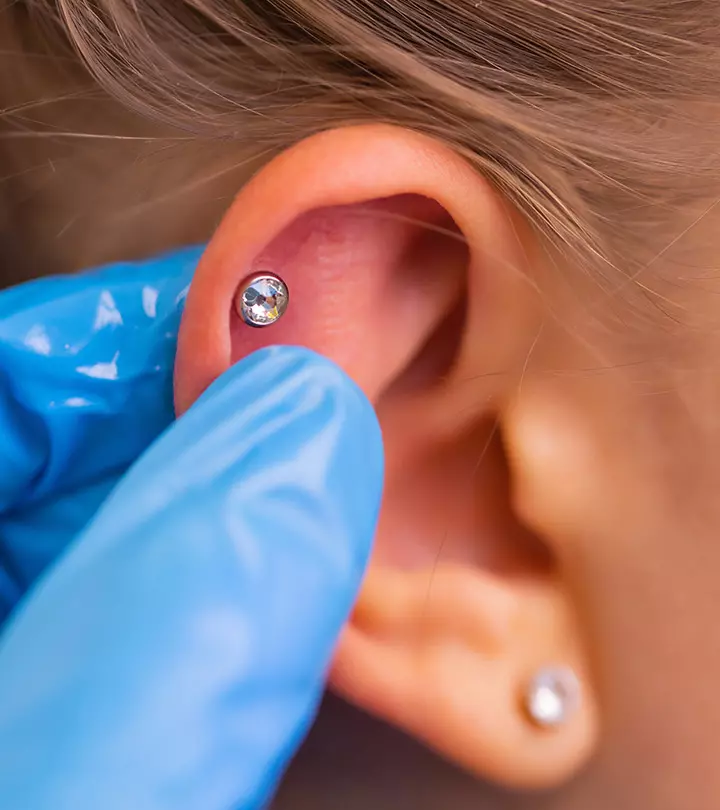
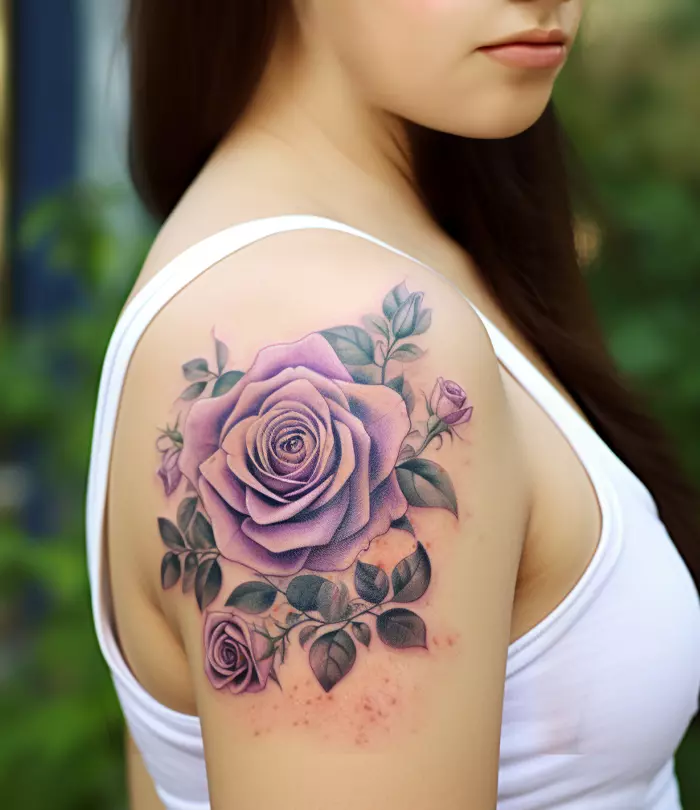
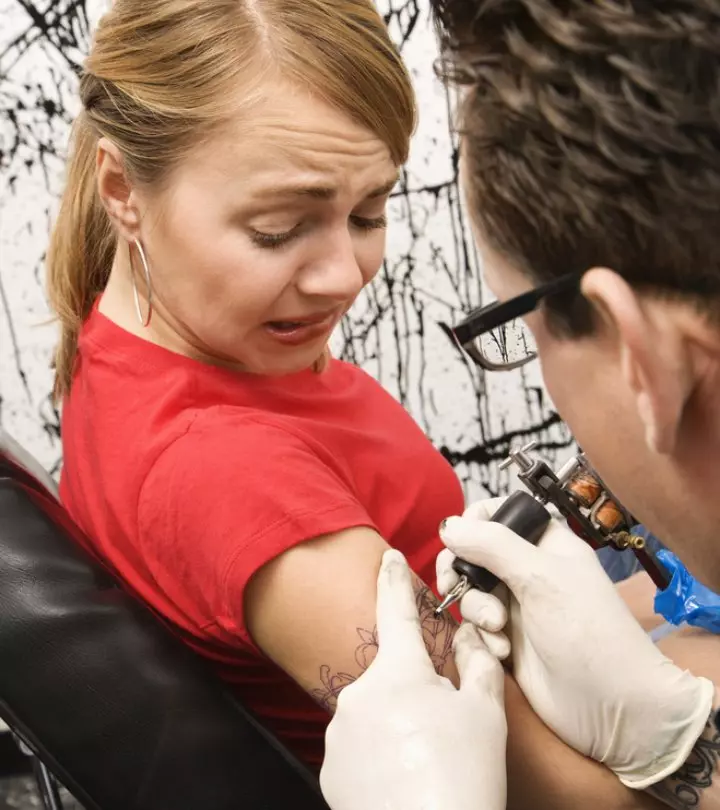
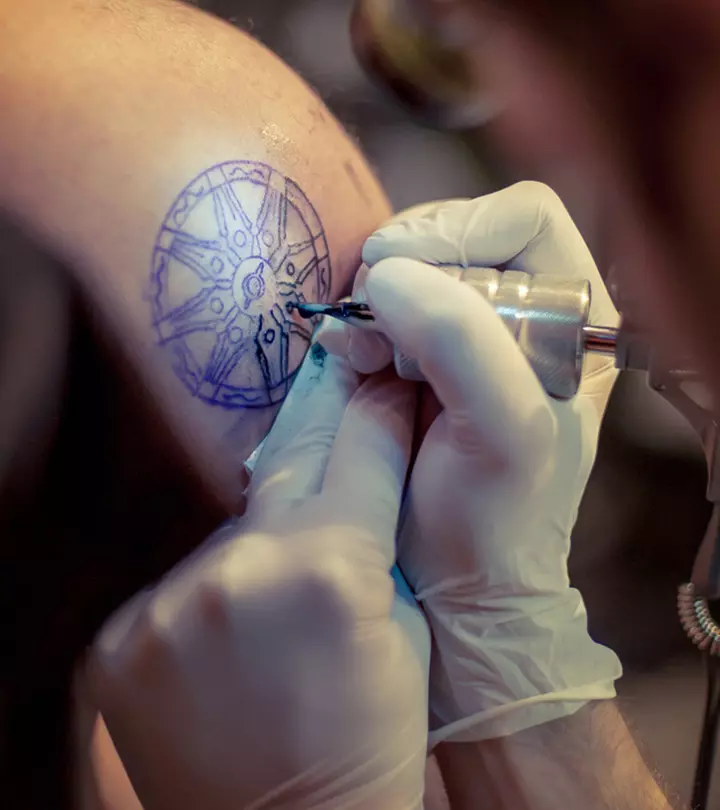
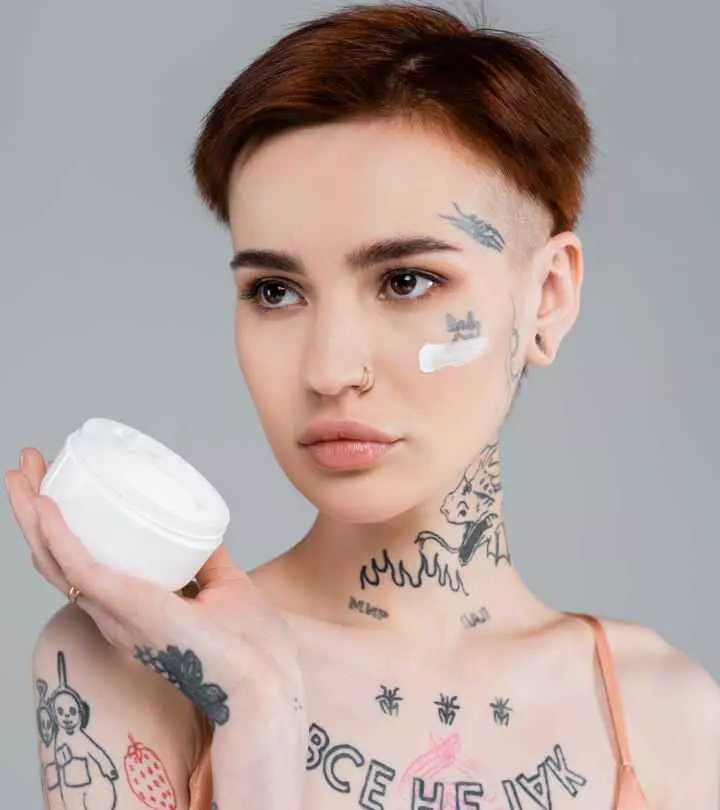
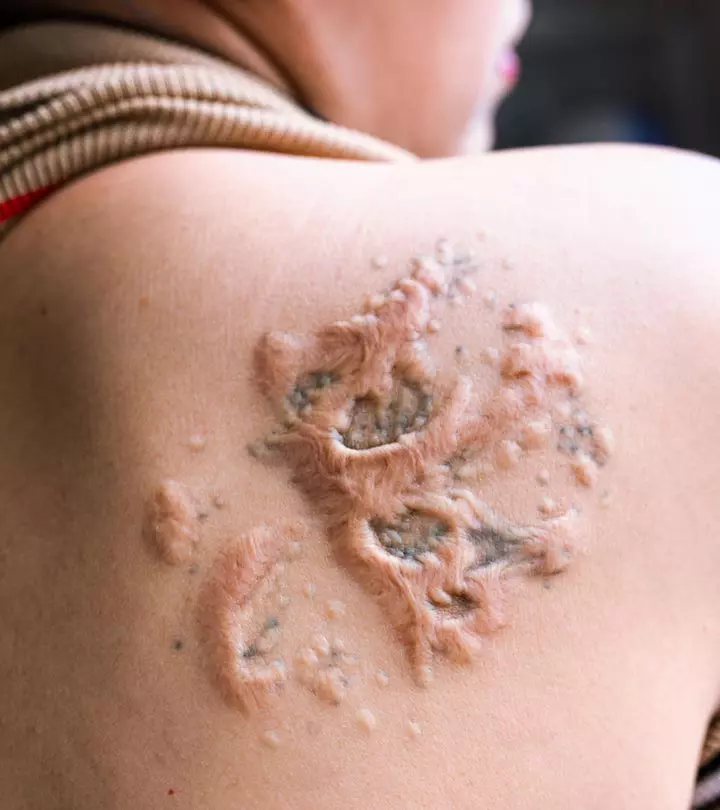
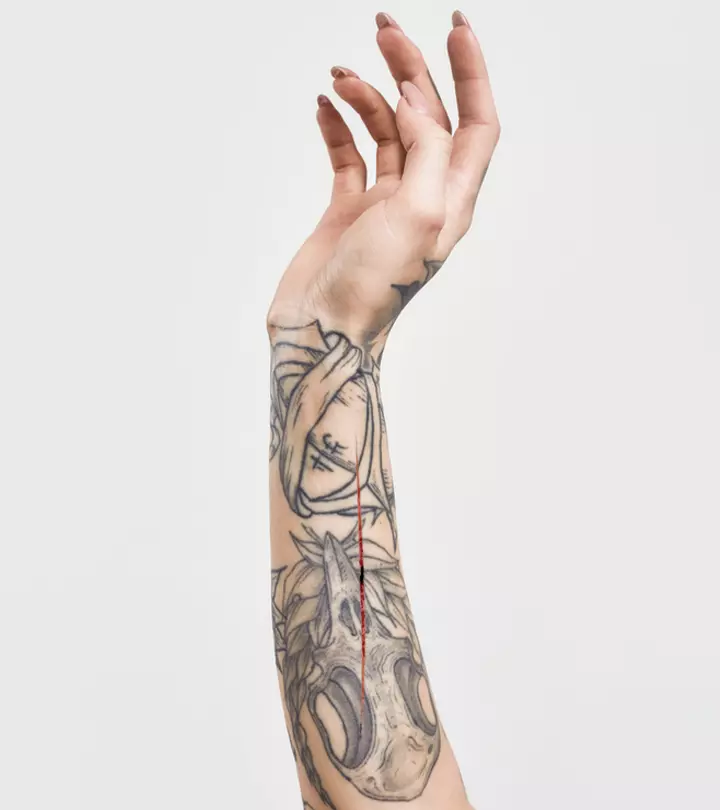
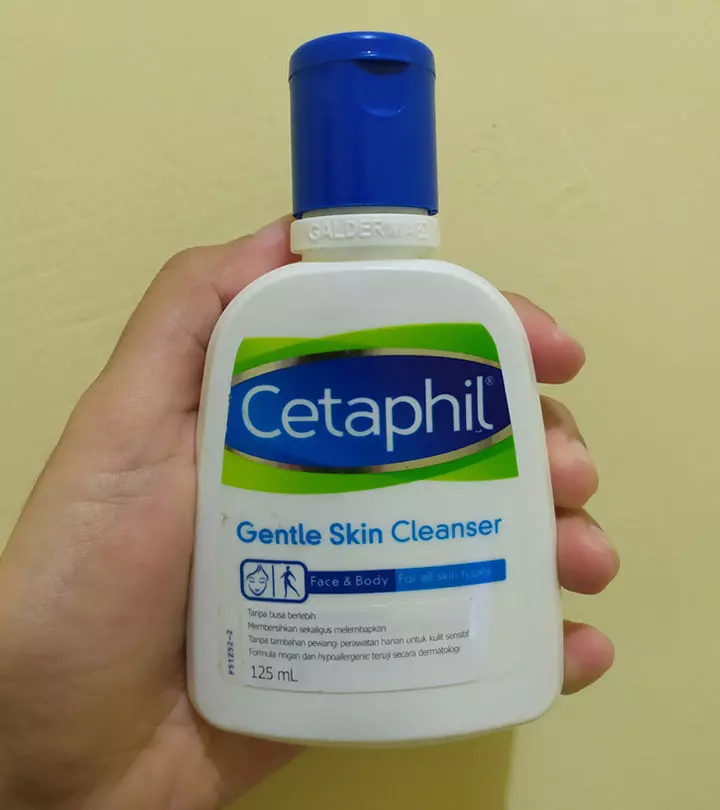

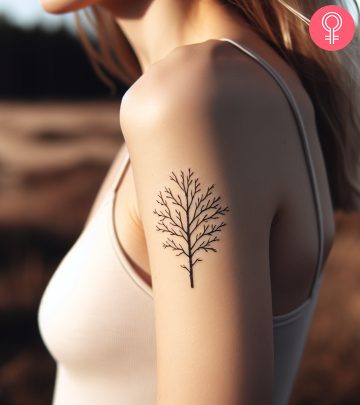
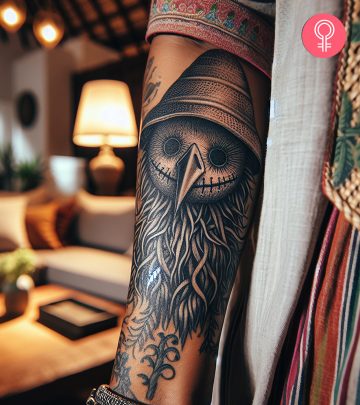
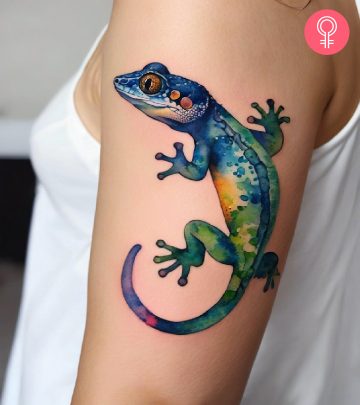
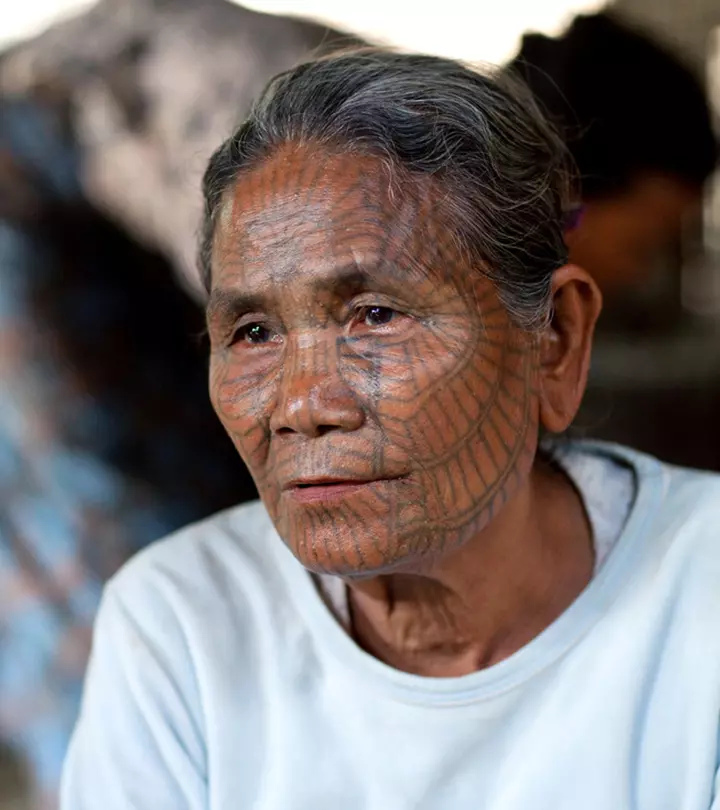
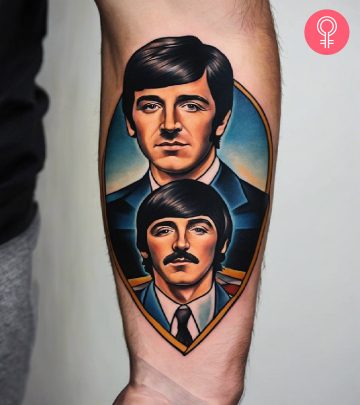
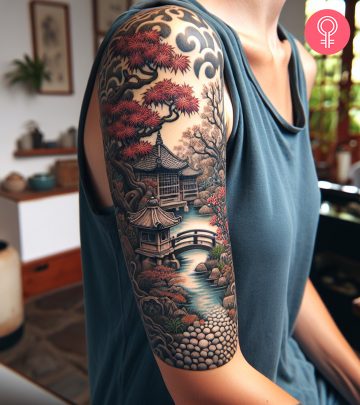
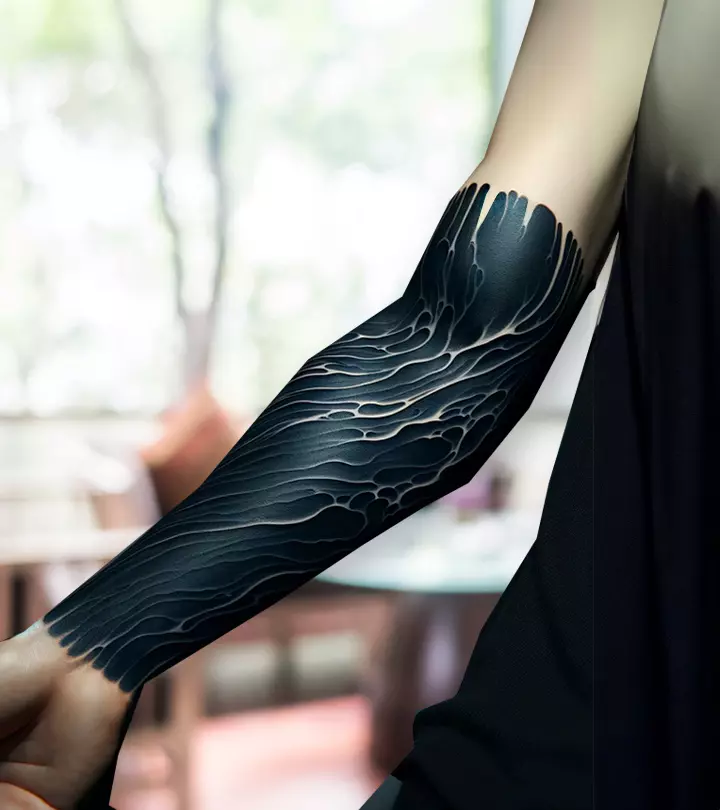
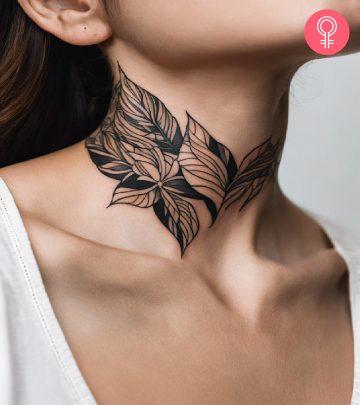
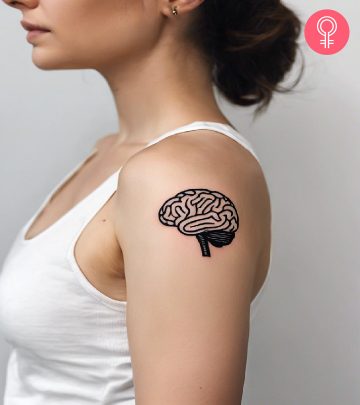
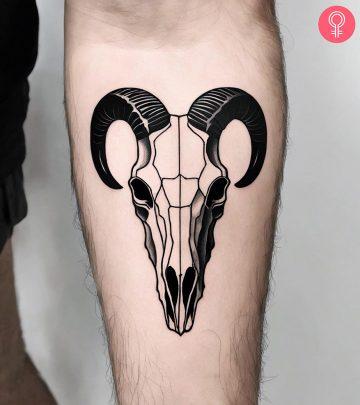
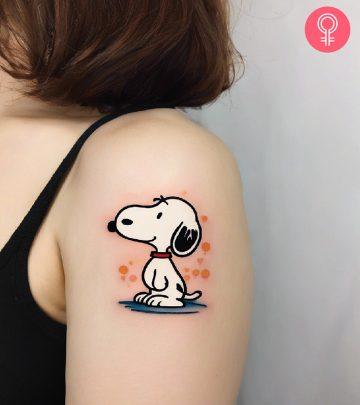
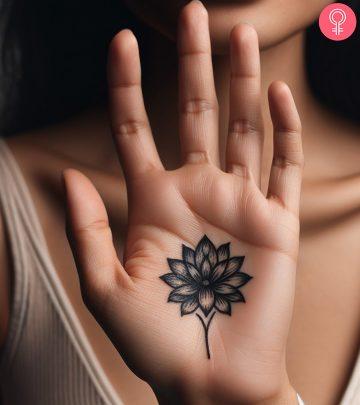
Community Experiences
Join the conversation and become a part of our empowering community! Share your stories, experiences, and insights to connect with other beauty, lifestyle, and health enthusiasts.